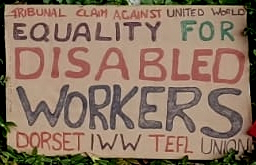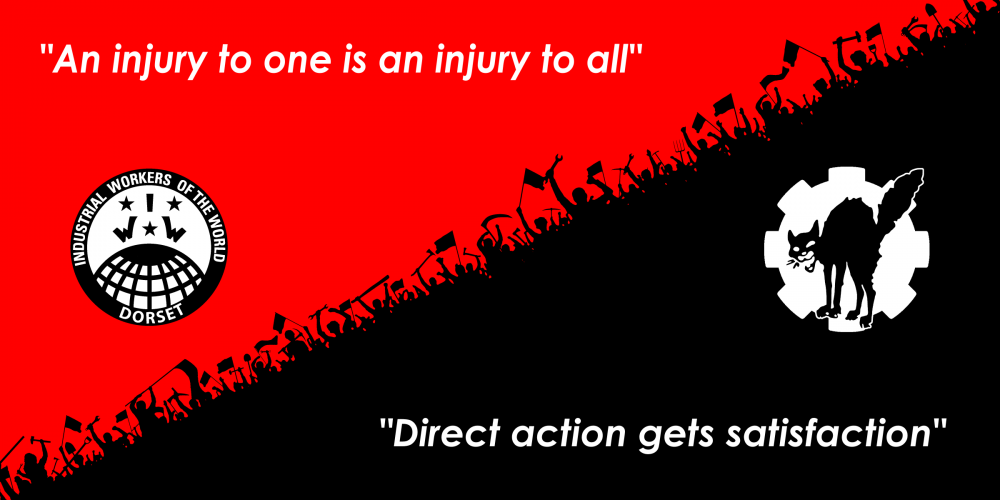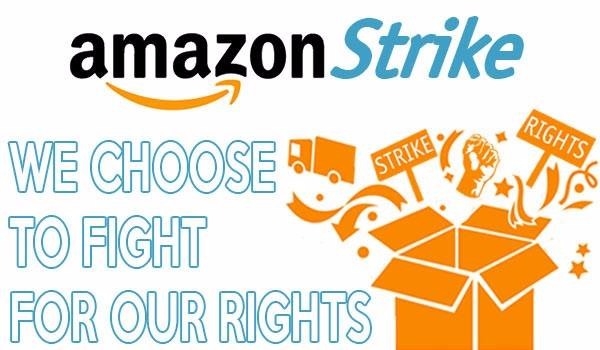Surprise picket at United World language school in support of disabled worker.

Picketing is great fun and we love doing it. If you exploit us we will shut you down!
Following an intense two-and-a-half year campaign by the TEFL Workers’ Union, an English language teacher has won a historic £22k payout at employment tribunal.
Mike Long had been employed by Bournemouth-based United World School of English for almost 20 years when it changed ownership. Mike soon fell victim to a drastically increased workload and pressure to complete unnecessary qualifications- all this despite the company being aware that Mike has suffered from depression and lives with anxiety. At one point the company even implied they didn’t believe his condition was real despite medical certification.
Mike felt he had no option but to resign and, with the support of the TEFL Workers’ Union, successfully campaigned against his former employer on the grounds of constructive dismissal. Constructive dismissal is notoriously difficult to prove with only 5% of cases leading to a positive judgement. The breadth of campaigning undertaken by TEFL Workers’ Union, the wider IWW, and disability activists was instrumental in ensuring its success.
Organiser John Davis, who supported Mike throughout the case, said: “There were a number of key elements that made this win possible. As a union we don’t rely on the legal system to gain justice for our members and our direct tactics were essential in ensuring justice would come.” The union undertook an online media campaign against the company as well as a number of direct actions involving protests outside the premises of the business in Bournemouth. This was particularly effective during an open day held by the school when prospective students were presented with IWW and disability rights campaigners informing them of the school’s discriminatory approach.
“It’s essential that companies, the community and fellow workers understand that we will take all necessary steps to ensure the rights of all workers, particularly those who are marginalised” John continued. “In this case we had to show the company and the industry that discrimination, particularly against someone with a recognised disability, was unacceptable.” “I think we did that”, he added.
In what could be considered a deeply cynical move, the company claimed insolvency shortly before the judgement. However, the union’s legal team is confident the company will be properly called to account. But for Mike there are more important issues at stake: “The money doesn’t matter to me. It’s more important that the school and other owners and employers in the industry realise how relevant recognition of mental health issues is”, he said. “I hope”, he added, “that anyone who suffers in a similar way can take solace that it’s worth the fight.” And this is where the importance of how we do what we do matters.
Mike didn’t come to the IWW for a top-down union-led response. Mike was well aware of the injustices he had suffered. As an IWW member he knew he had control over how his own story would be told. As the collective mechanisms of the union worked together, a powerful momentum was created. Mike led the charge with meticulous historical evidence. Information and knowledge was shared. The Bournemouth IWW joined with other groups to place local and very real physical pressure on the company. Online, activists came together to increase and broaden the pressure. Mike and John worked together in briefing other activists with strong legal knowledge to create a solid tribunal case that properly represented Mike’s story. None of these things worked in isolation.
As Mike concluded, “I’ve come out with my head high and a reaffirmed belief in my future.” The union is immensely proud of the work Mike and John put into this case. When one TEFL worker fights back against injustice and succeeds, it makes the industry a little better for all of us. We can all hold our heads high knowing that, by sticking together, a better future is in reach for all of us. If you work in an English language school and suffer from any long-term medical issues, you have enhanced legal protections. If you’re worried that your school isn’t treating you right because of a disability, don’t suffer in silence. You can reach a union rep at tefl@iww.org.uk who can help you raise any issues or concerns with your employer.














 A FW writes:
A FW writes: